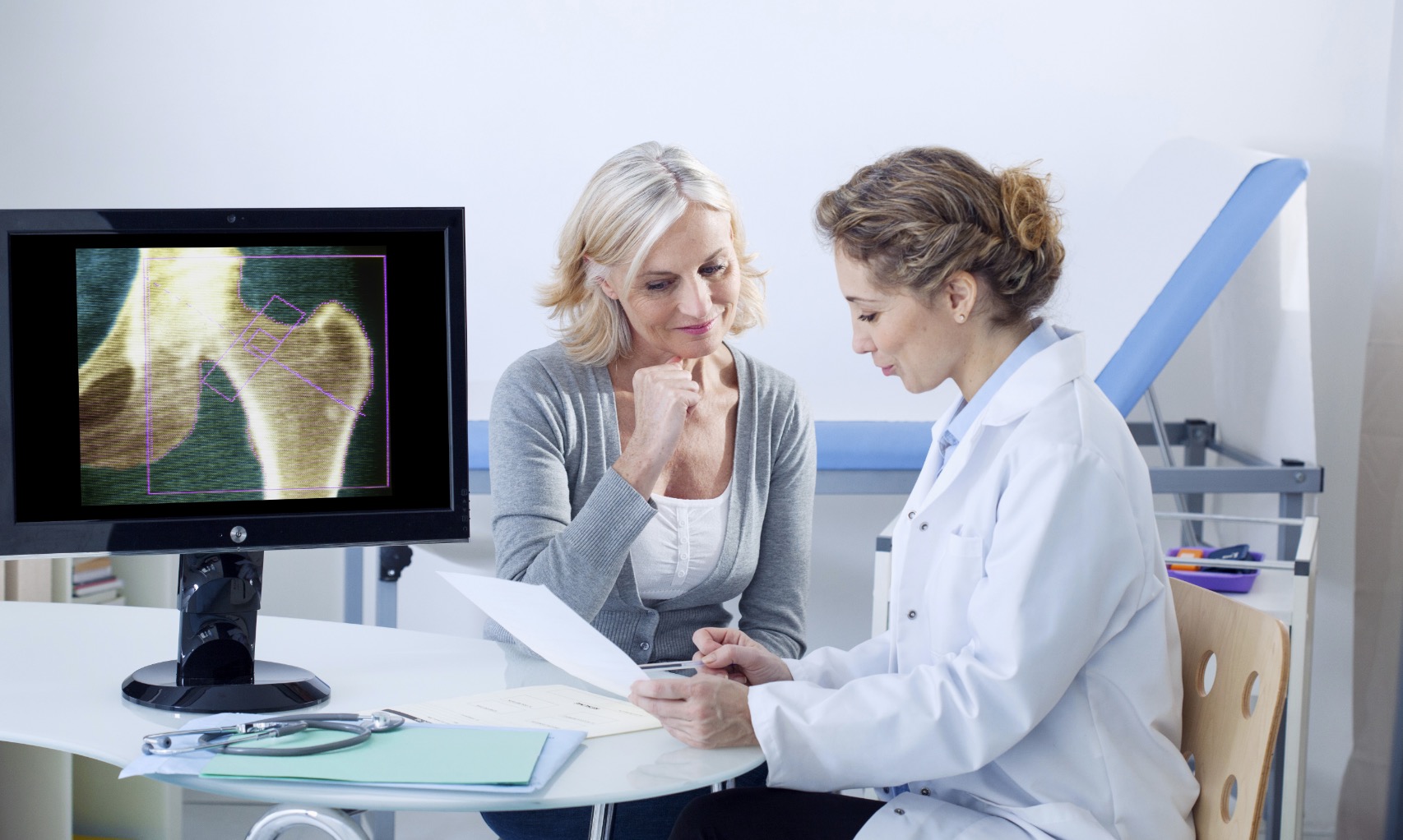![]()
Bone scan imaging today relies on DEXA scanning technology. DEXA stands for dual-energy X-ray absorptiometry. DEXA is the most accurate test to measure and check bone density.
A bone scan (DEXA/DXA) measures bone density–thickness and strength. The DEXA scan aids the diagnosis of osteoporosis, or bone loss. Loss of bone mass leads to weaker bones. Weak bones contribute to increased risk of fractures.
Osteoporosis occurs more often in women after menopause than men. Reduced hormone production contributes to bone loss. Decreased calcium and other nutrient levels that boost bone strength are also culprits.
Diagnosis of bone loss in major joints such as the hip or spine aids in treatment options for some.
Benefits of a bone scan exam:
Bone scan (DEXA) imaging technology is more accurate than a traditional X-ray. Your doctor might request a bone density scan to determine your risk for osteoporosis. The doctor might also use the test to assess severity and rate of bone density loss.
Decreases in bone density increase the risk of fracture, especially in older people. Early diagnosis of bone loss and treatment options are benefits of a bone scan. The test tracks progress of osteoporosis progression and treatment responses.
The National Osteoporosis Foundation recommends bone scans for:
The bone scan measures bone density to determine:
Test results help your doctor determine risk, diagnosis, and potential treatment methods. This approach also helps reduce risk of future fractures.
Low bone density doesn’t imply that you might get osteoporosis, but that risk increases.

Preparation for a DEXA scan is not complicated. If you can, wear loose clothing without snaps or zippers. Avoid consumption of calcium supplements for at least 24 hours before your test. Tell your doctor if you are pregnant, if you’ve recently had a barium exam or if you’ve recently received contrast material for a CT scan.
The screening might take 5 to 15 minutes.
A DEXA scan is non-invasive and painless. The test uses low-dose radiation. A radiologist performs the exam. You will either lie on a table or place your arm, your foot, or your hand on a small scanning device. A special type of X-ray machine takes images, so you will be asked to remain still.
Low-dose energy beams from the DEXA scan allow your doctor to identify between soft tissue and bone. Bone density scans use a much lower level of radiation than standard X-rays. In fact, the amount of radiation used is less than the level of radiation that people are exposed to naturally over the course of 2 days from natural background radiation (NBR). DEXA scanning technology enables early detection of bone loss.
After your exam, your radiologist will review and interpret your DEXA scan. Test results are available within 48 hours for you to view on our Patient Portal. We also send test results directly to your physician. From there, your doctor will follow up with you with the test results and recommendations regarding your bone health.
National Health Service (UK)
https://www.nhs.uk/conditions/dexa-scan/
Medical News Today
https://www.medicalnewstoday.com/articles/324553.php
National Osteoporosis Foundation
https://www.nof.org/patients/diagnosis-information/bone-density-examtesting/
For more detailed information about bone scan (DEXA) imaging
offered by Premier Diagnostic Imaging, Email or Call Us at (931) 528-1800.